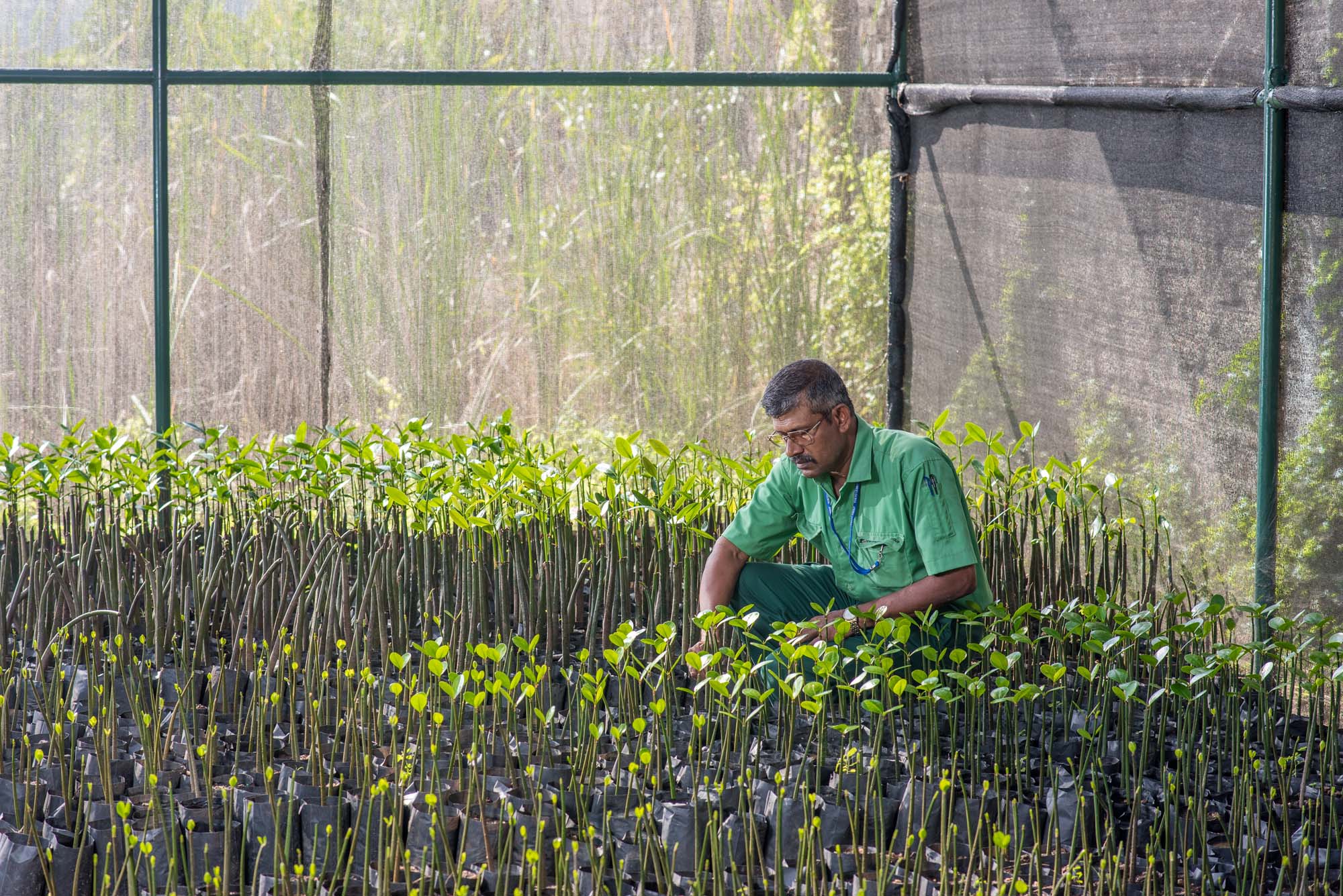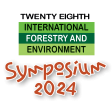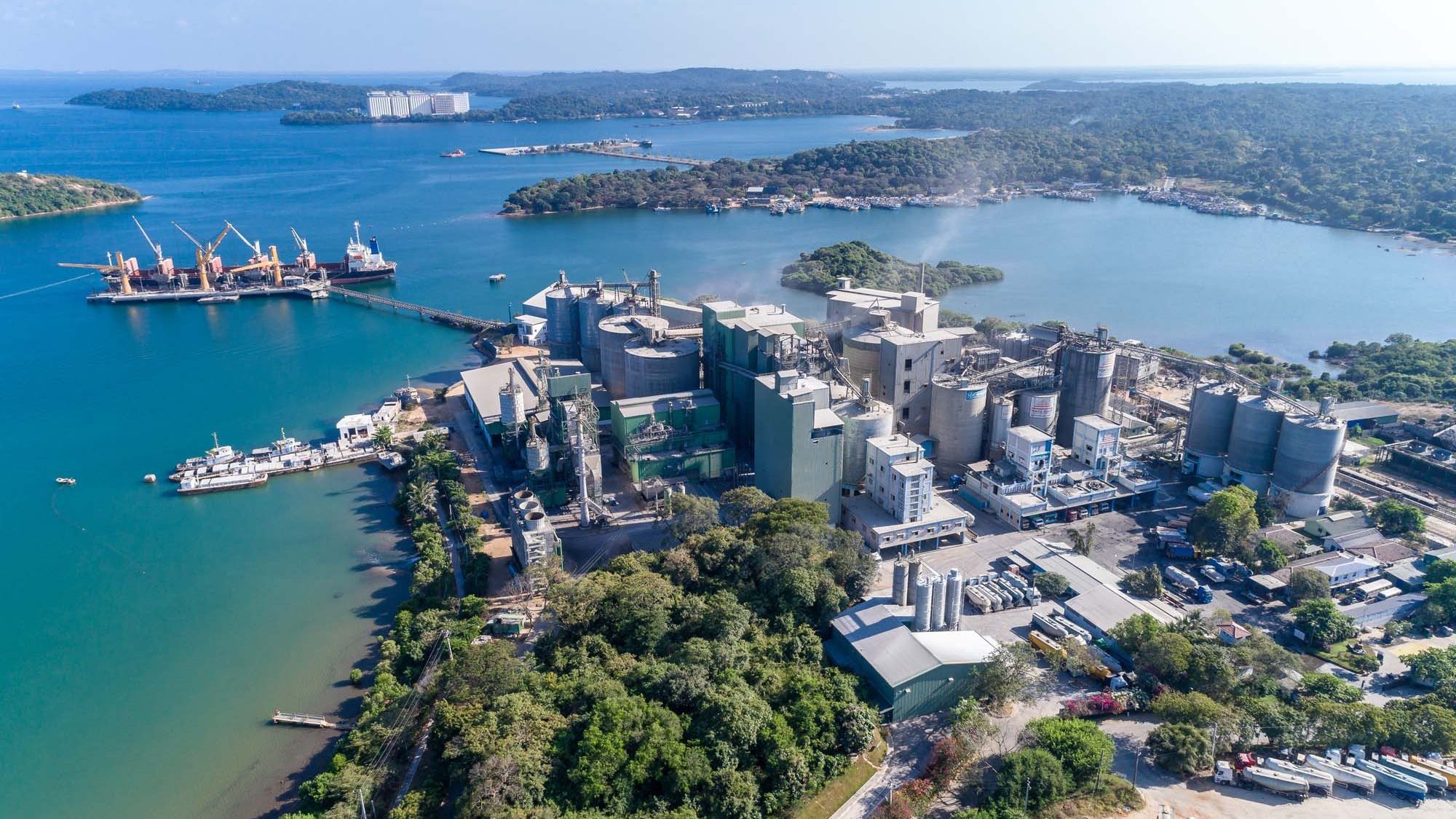
Tokyo Cement Group: Transforming Sri Lanka
‘from the Concrete Jungle to a Greener Nation’
Tokyo Cement Group spearheads a number of far-reaching sustainability initiatives that have an impact on our Profits, People and the Planet, with the aim of creating greater stakeholder value. Many of these social and environmental initiatives stem from the desire to improve ourselves as a sustainable business entity and as an exemplary corporate citizen. We have initiated many industry firsts and successfully demonstrated that it is within every corporate citizen’s control to achieve profitable growth and earn shareholder confidence, whilst making environmentally sustainable goals and social consciousness key business priorities.
Committed to Unparalleled Product Quality
Tokyo Cement Group is the undisputed market leader in manufacturing high quality Cement, Concrete and Cement-based Value-Added Products in Sri Lanka. As a truly homegrown company, Tokyo Cement has invested in innovative processes, modern factories, and top-grade raw material to raise the bar on quality and cement the market position as a trailblazer.
As a company that is intricately linked with the nation’s growth, providing it the strength to build higher and stronger, Tokyo Cement has made it a key responsibility to ensure that this is done with utmost consideration towards the natural environment. Tokyo Cement Group is among the leading corporates in Sri Lanka making significant contributions to conserve the unparalleled biodiversity of the country, while adopting eco-friendly industrial processes; an inimitable combination that gives it a distinctive competitive advantage in the manufacturing sector.
Tokyo Cement Group operates the country’s only ISO certified cement and concrete testing lab. Keeping quality at the forefront of operations, Tokyo Cement is the first local company to achieve ISO 14001 Environment Management Systems Certification and the first cement manufacturer to achieve ISO 9001 Quality Management Systems Certification.


For Our Planet
Years ago, we made a promise to do everything in our power to change our country ‘from the concrete jungle to a greener world’. And in keeping up with this promise, we set forth on a journey made up of many small steps, that take us and our future generations towards a greener, healthier, and sustainable tomorrow.
Renewable Energy Generation
Tokyo Cement Company, as the largest manufacturer of cement and concrete in Sri Lanka, made a far-reaching strategic decision to use only Renewable Biomass Energy for the entire local manufacturing process. The goal was to become 100% energy independent and be the role model for other industrialists. Today, with a total capacity of 24 MW, Tokyo Cement Group is the single largest contributor of renewable green energy in the country.



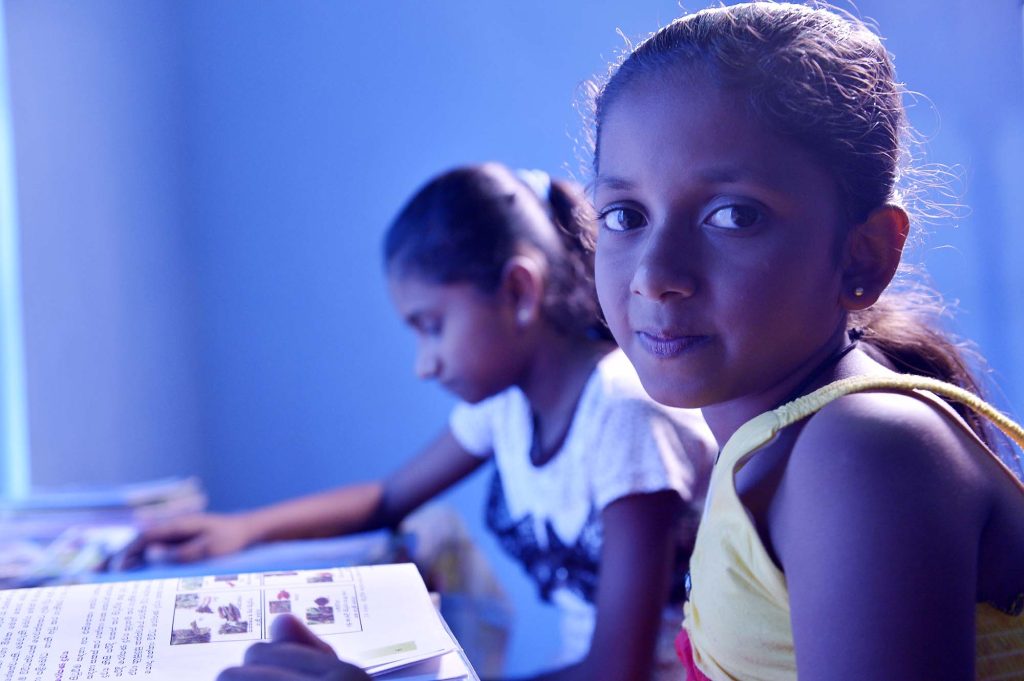
The Tokyo Cement Power Plant illuminate farming villages in Mahiyangana
The impact of this green energy initiative is further enhanced by creating several hundred direct and indirect employment opportunities in the rural farming sector. This holistic renewable energy program has enabled Tokyo Cement to illuminate more than 30,000 rural households whilst the community trade biomass fuel sourcing program provides an additional income that is not hindered by droughts or off-crop seasons for the farming community. Every year a significant portion of the Company’s total energy bill is diverted to these framers, enabling cash flow to the country’s rural economy.
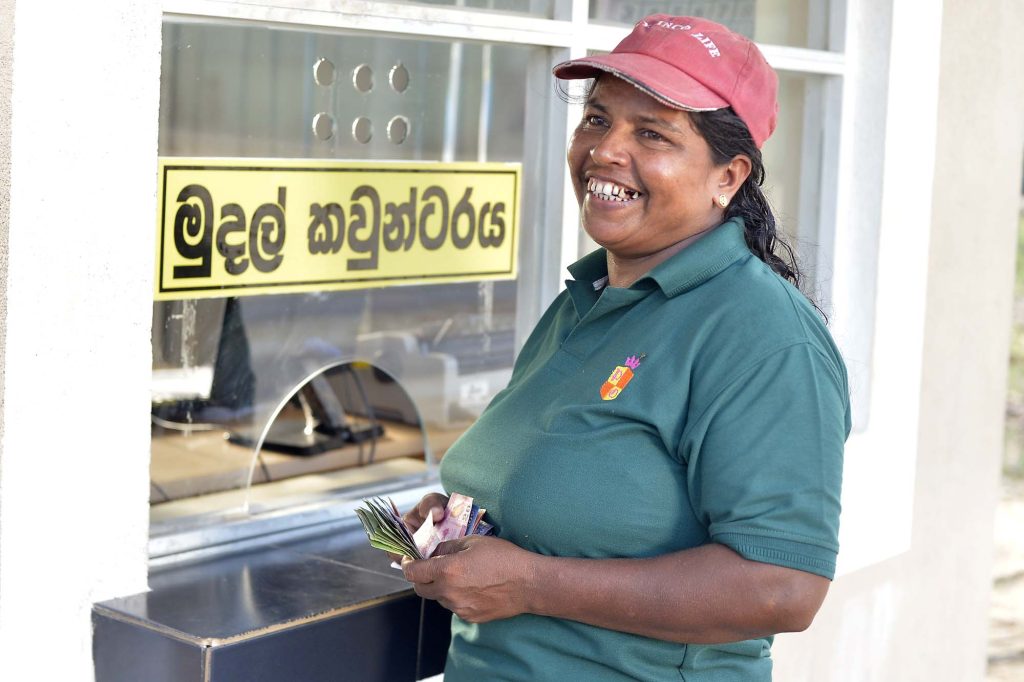
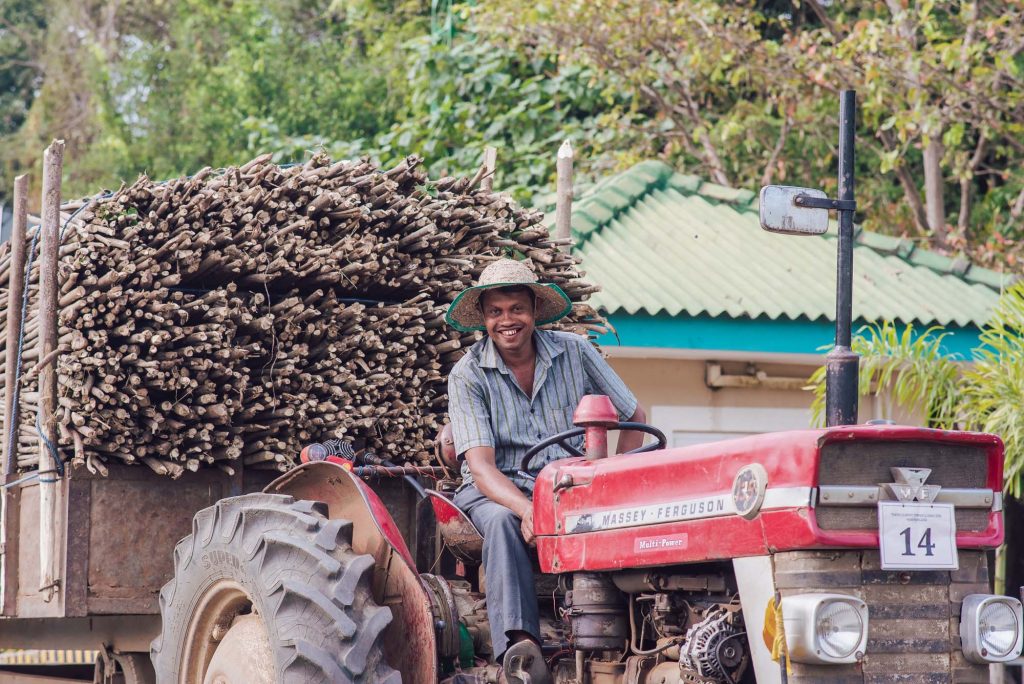
Tokyo Cement’s community trade fuelwood sourcing model generates an additional income for rural farming communities
Committed to a Greener Tomorrow
Tokyo Cement Group also leads several prominent socio-environmental initiatives through which the Company has been able to transform the lives of the people, the environment, and the nation. In the conservation front, by emphasising on critically endangered ecosystems that require immediate intervention the Company has drawn attention and rallied many stakeholder groups to take action to restore the country’s natural ecological balance. Via these efforts that have become an intrinsic part of Tokyo Cement’s corporate identity, the Company envisions sustaining the country’s incomparable biodiversity for our future generations while minimizing the impact of climate change.
Mangrove Reforestation
The Company carries out a successful Mangrove Reforestation program in collaboration with the Sri Lanka Navy Eastern Command, with the objective of replenishing the mangrove habitats along Sri Lanka’s North and Eastern coastlines.
In 2012 the Company set up a mangrove nursery that can nurture 10,000 mangrove seedlings at a given time within its factory premises in Trincomalee. Eight native mangrove species are propagated at this nursery, namely, Bruguiera gymnorrhiza, Bruguiera sexangula, Rhizophora mucronata, Ceriops decandra, Avicennia marina, Lumnitzera racemosa, Excoecaria agallocha, and Aegiceras corniculatum. Some of these species, such as Ceriops decandra which is classified as a Near Threatened species on the IUCN Red List (IUCN, 2018), are extremely difficult to propagate even under normal conditions.
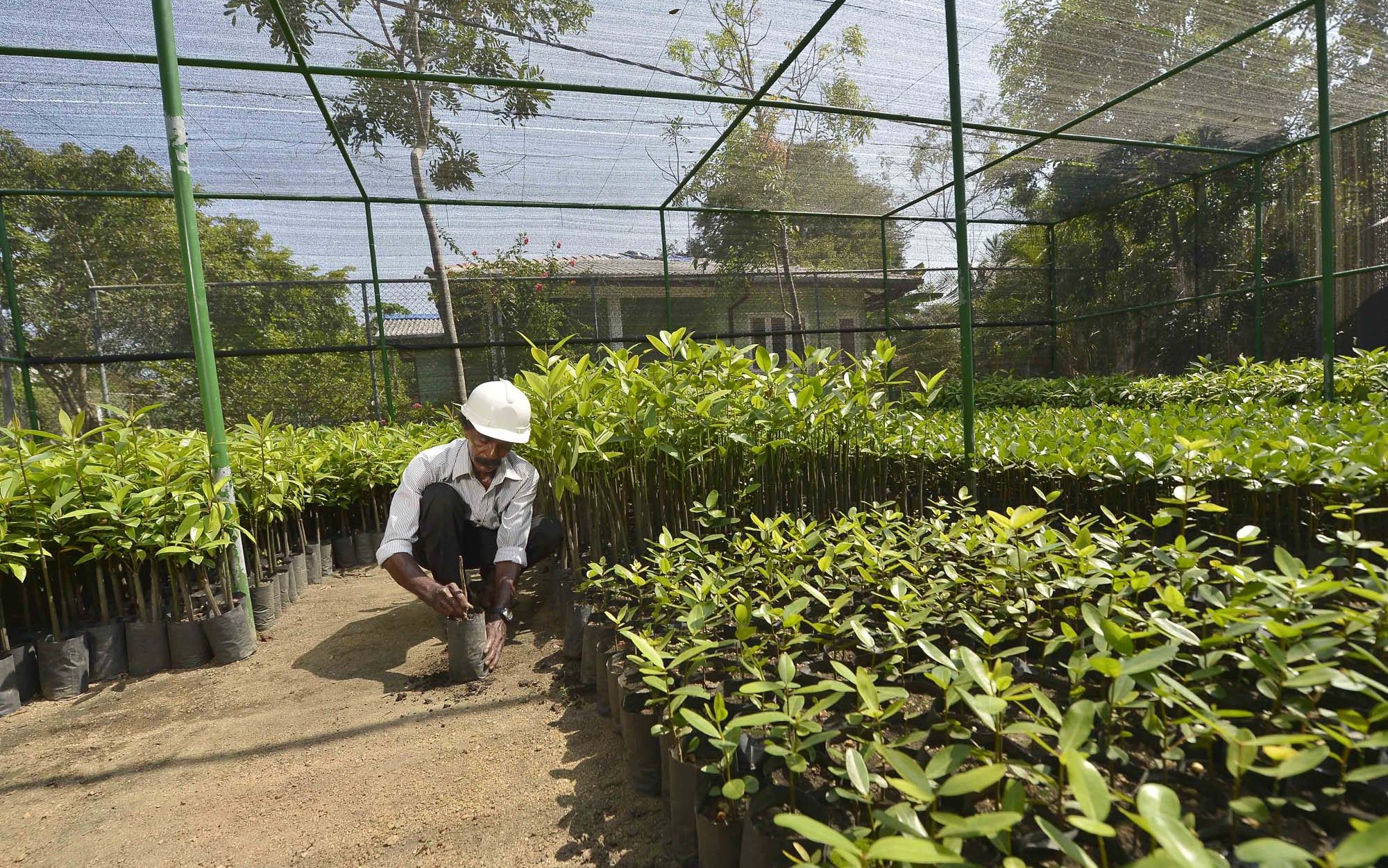
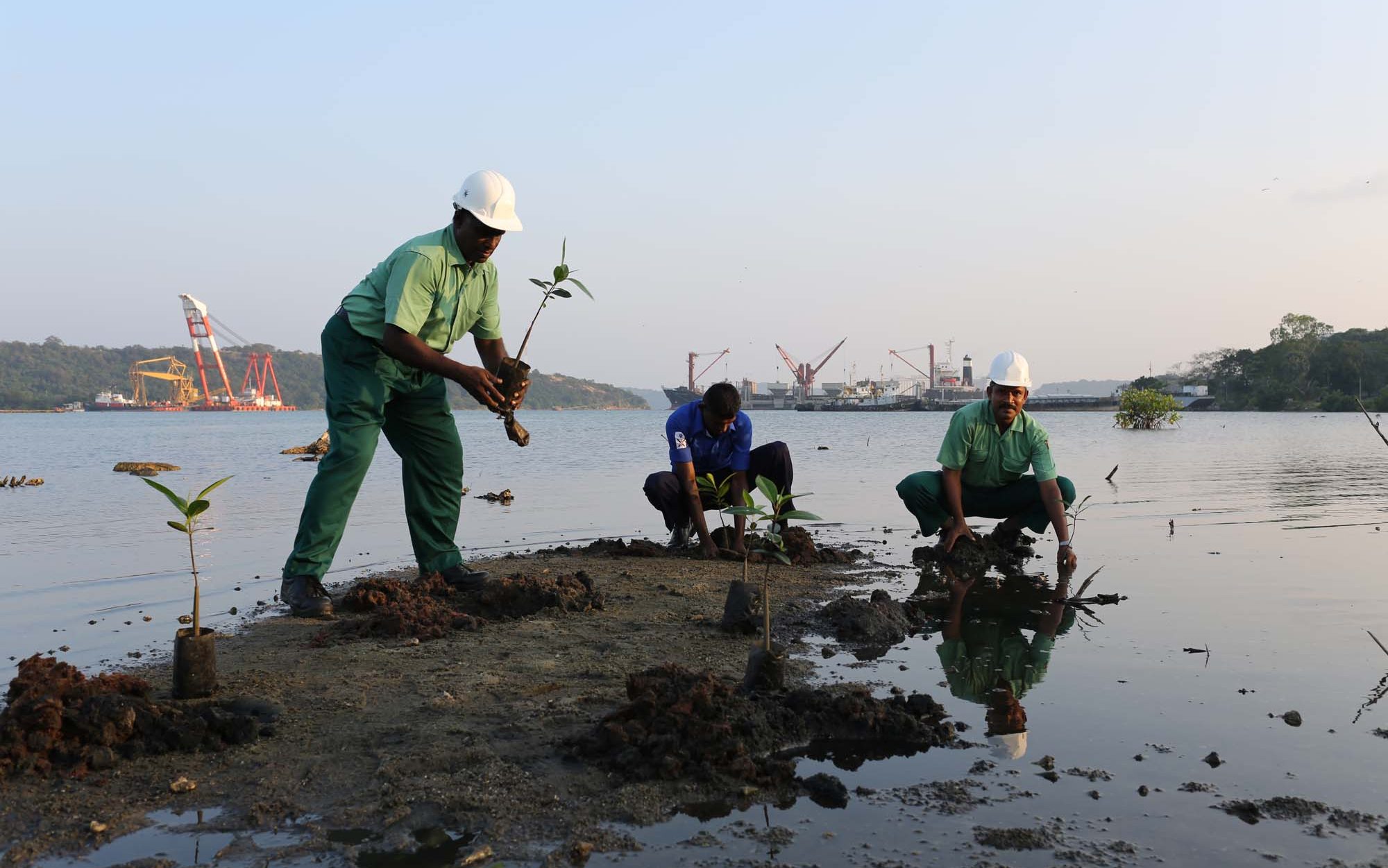
The replanting which began on a 20-Acre stretch of land adjacent to Tokyo Eastern Cement Factory was soon extended across Trincomalee Bay. Replanting of saplings was done according to the natural composition of species native to each habitat under the guidance of conservation experts. The project has so far planted more than 86,000 mangrove saplings along the coasts of Trincomalee, Jaffna and Mannar, with the assistance of Sri Lanka Navy.
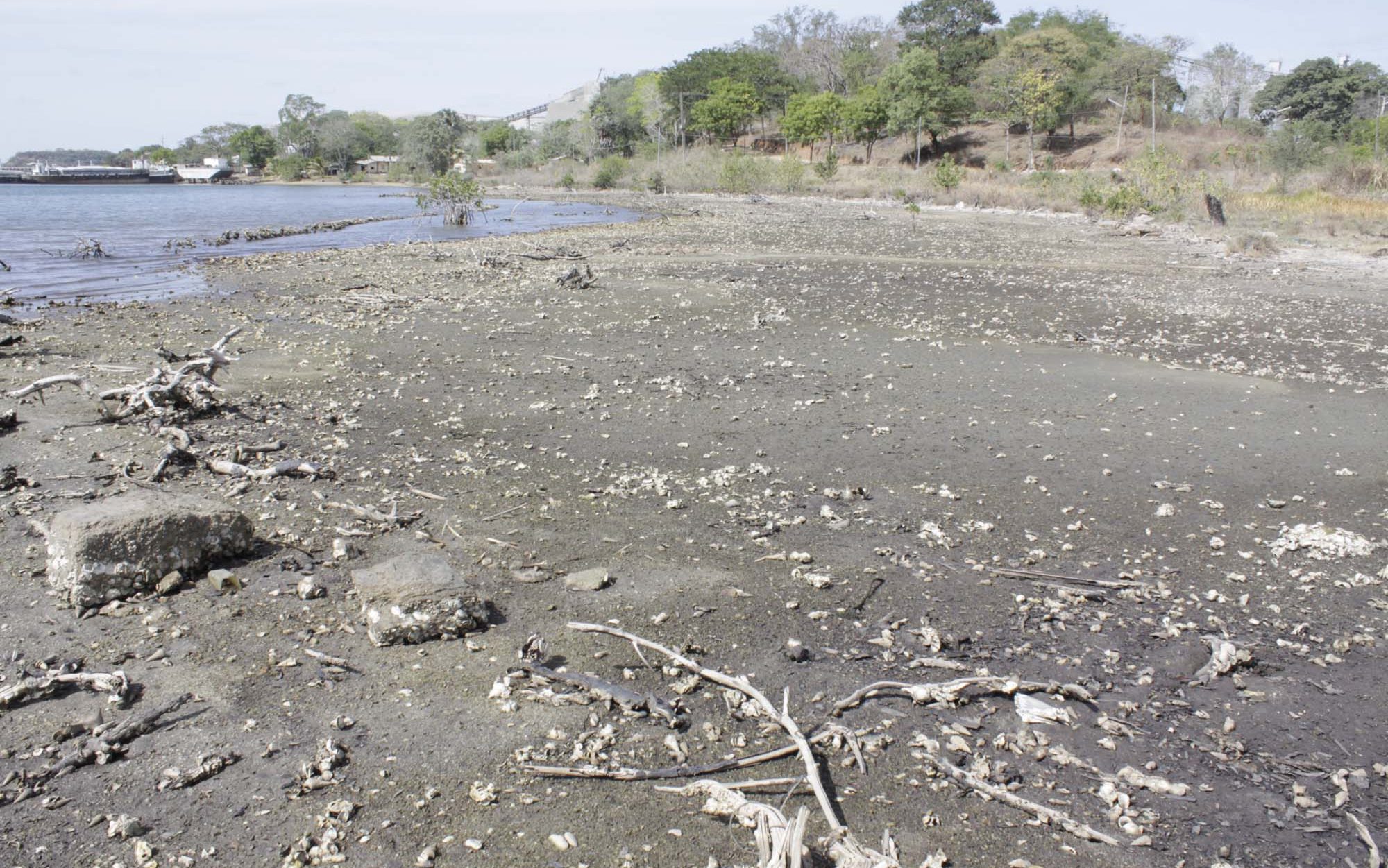
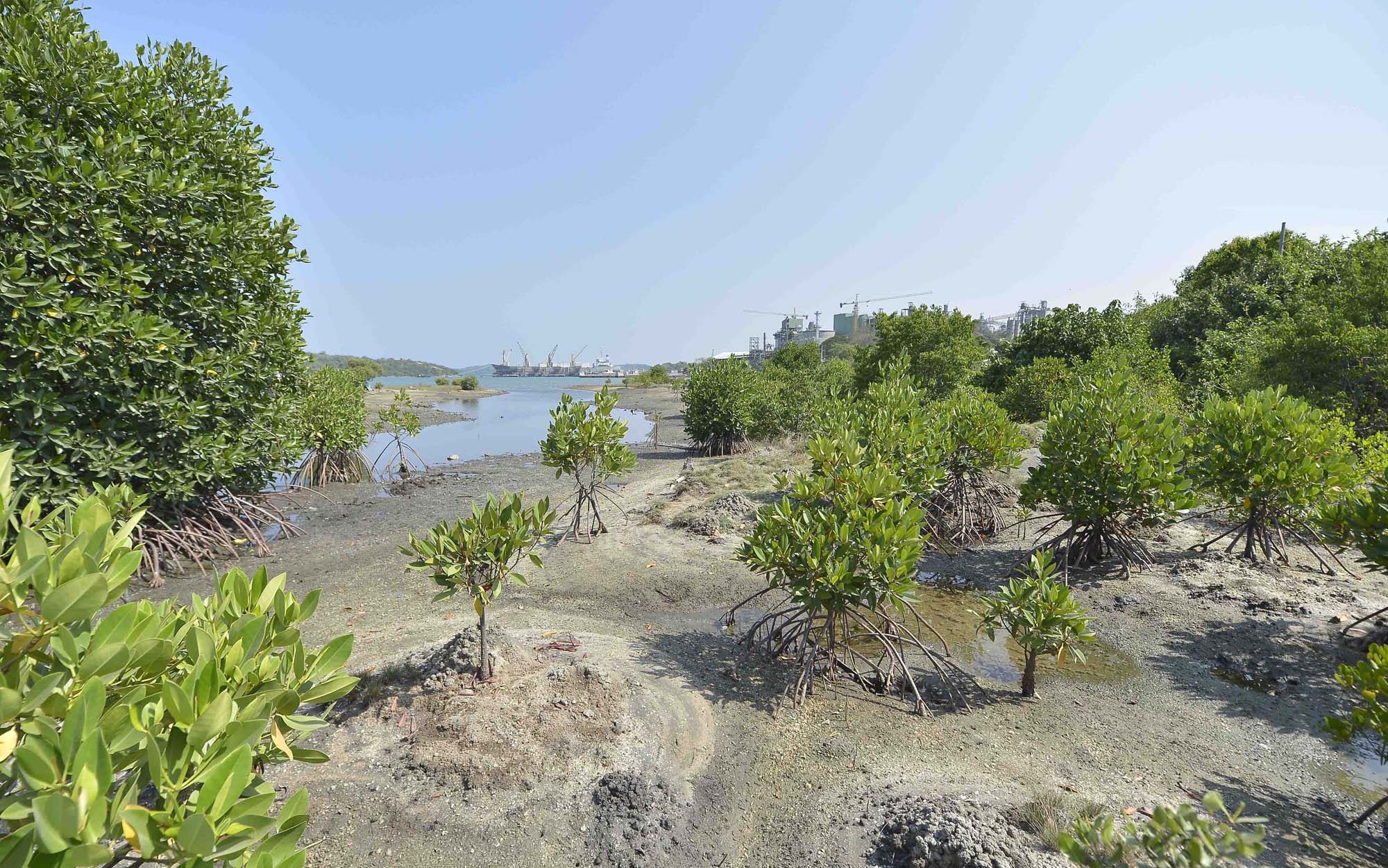
Coral Reef Conservation
Tokyo Cement Group’s Coral Reef Rehabilitation program supports long-term research on coral growth, while planting new corals on reef balls made using recycled concrete.
In 2012, Tokyo Cement together with a consortium of partners started deploying reef balls; hollow structures made using recycled concrete waste from TOKYO SUPERMIX Ready-Mix Concrete plants, that act as substrate for marine life and new corals to inhabit.
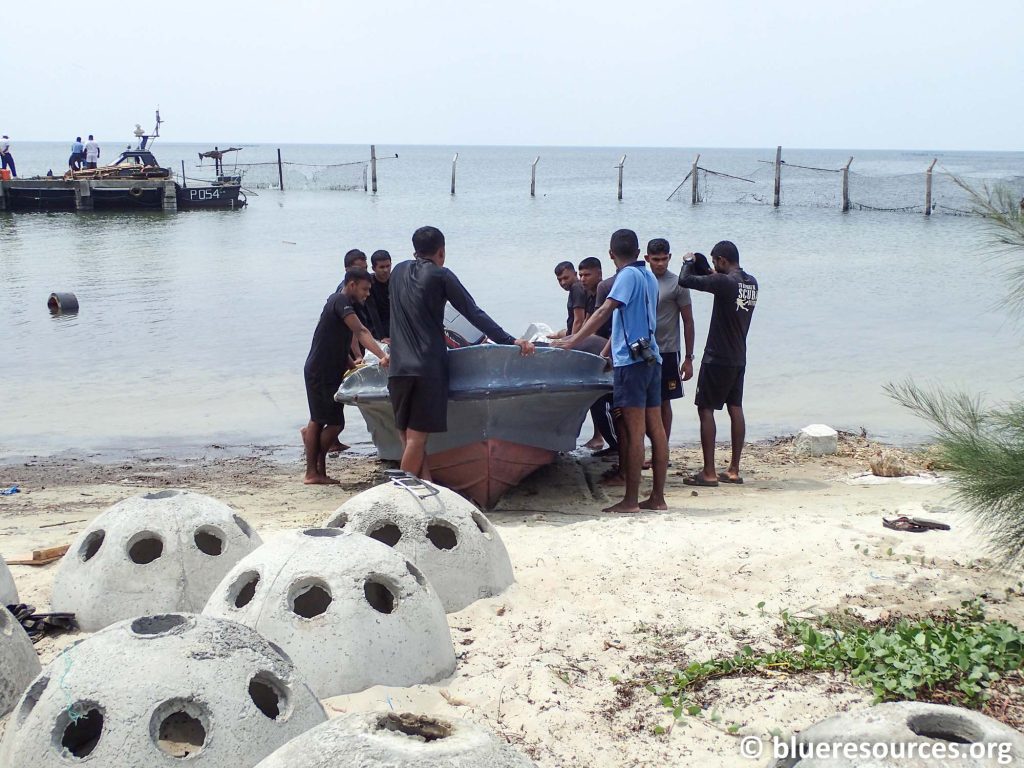
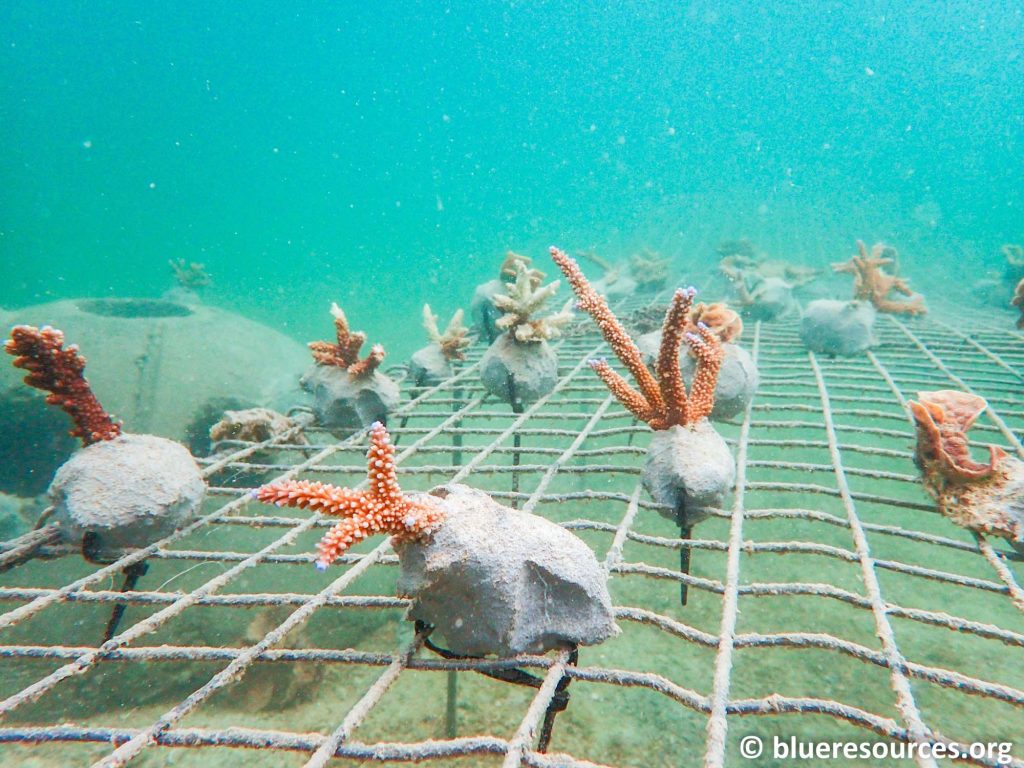
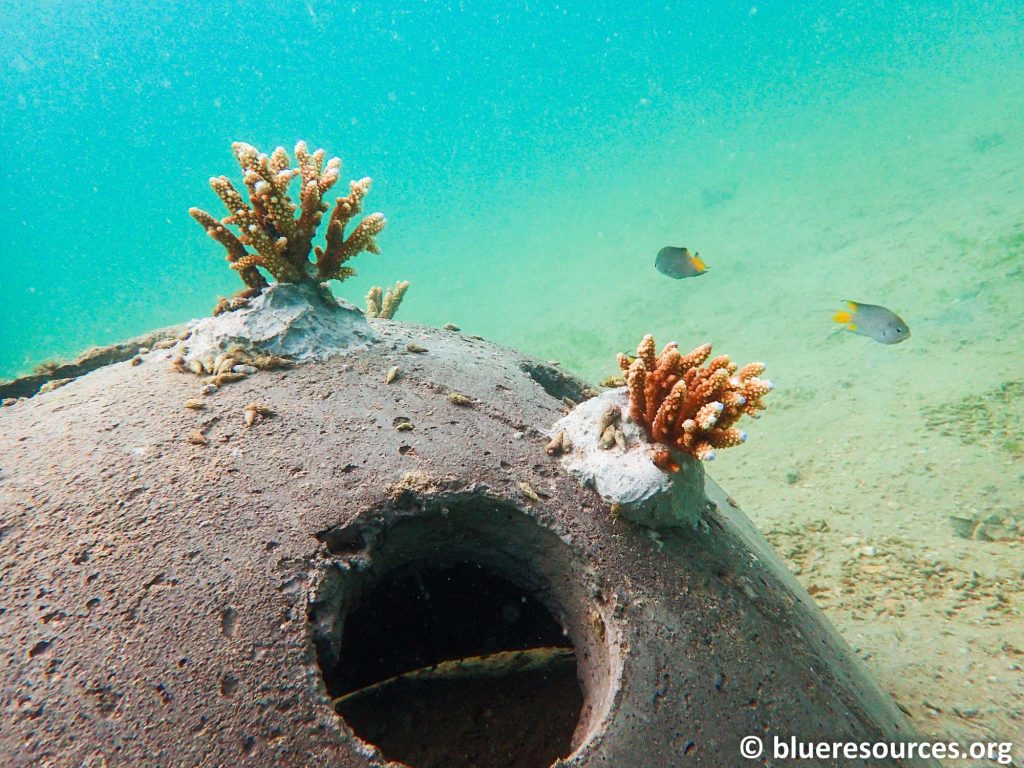
The partners in this project include, the Blue Resources Trust (BRT), the Sri Lanka Navy, Foundation of Goodness and the Ocean Resources Conservation Association (ORCA), who bring in valuable knowledge and years of hands-on expertise to ensure the project’s lasting success. The project’s impact and reach are further improved through collaborations with government institutions such as the Marine Environment Protection Authority (MEPA) and the Department of Wildlife Conservation, who work on coral reef restoration in the Southern and Eastern coasts of the island.
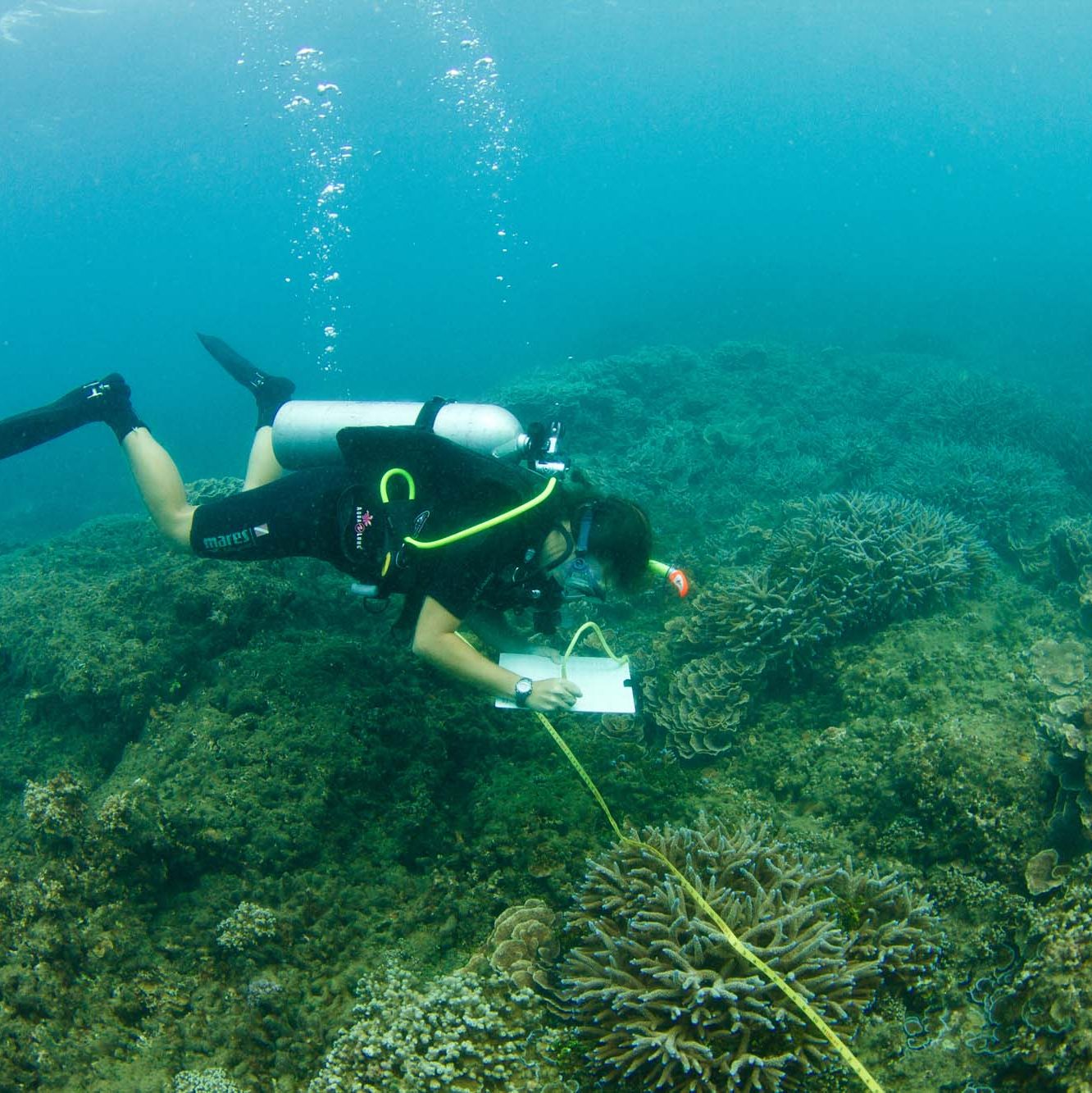
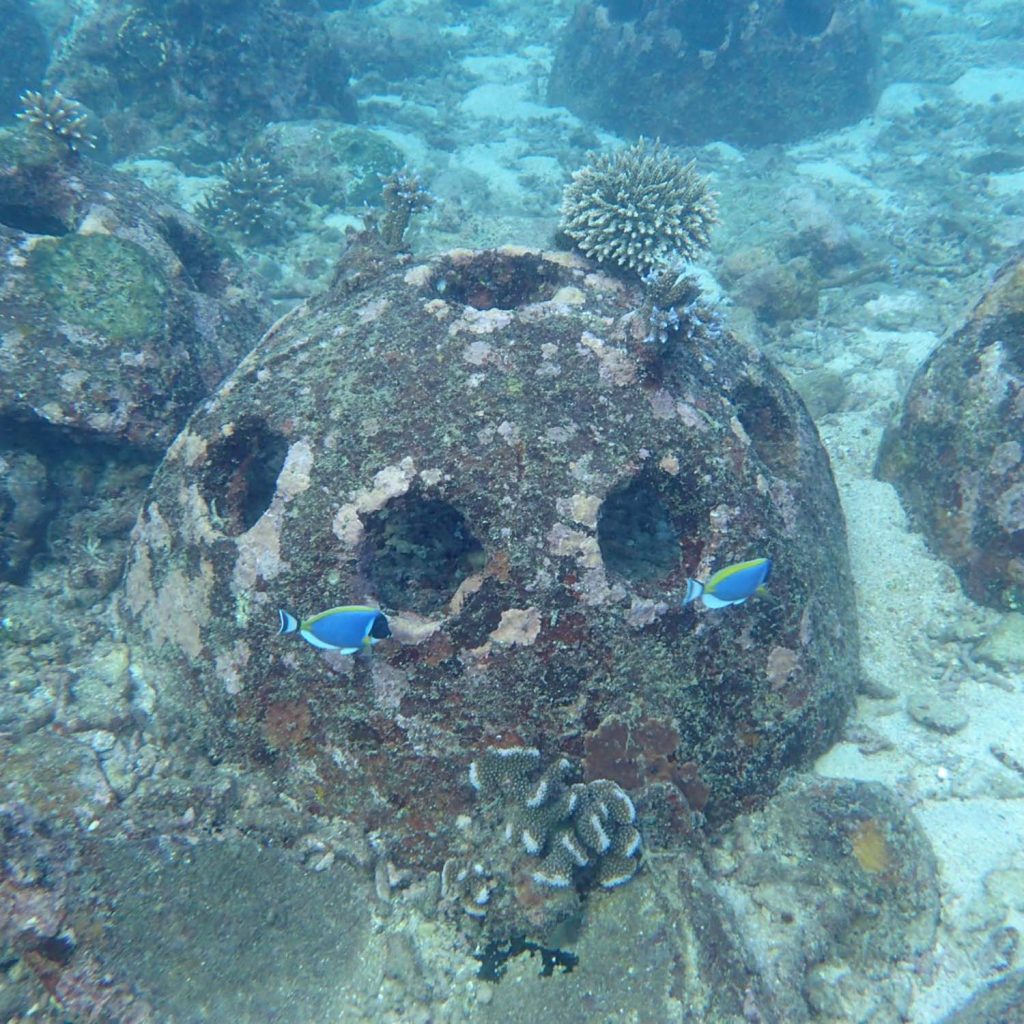
In addition to the ongoing research on coral reefs, BRT commissioned research to identify critical habitats of sharks and rays in northern Sri Lanka, with the objective of helping develop a sustainable fishing policy with recommendations to prevent overfishing. The study, in its initial phase around Mathagal in the Jaffna Peninsula, assesses important habitats of critically endangered and threatened elasmobranchs, a unique group of fishes with cartilage skeletons such as sharks and rays.
Native Forest Tree Propagation
In 2017 Tokyo Cement Group set up two forest plant nurseries; one at the Trincomalee Factory and another at the Mahiyangana Power Plant premises. Each nursery annually propagates 10,000 native forest tree plants that include valuable indigenous trees with medicinal properties such as, Karanda, Mee, Ingini, Kumbuk etc. both as to replenish the country’s natural forest cover whilst managing its rich biodiversity.
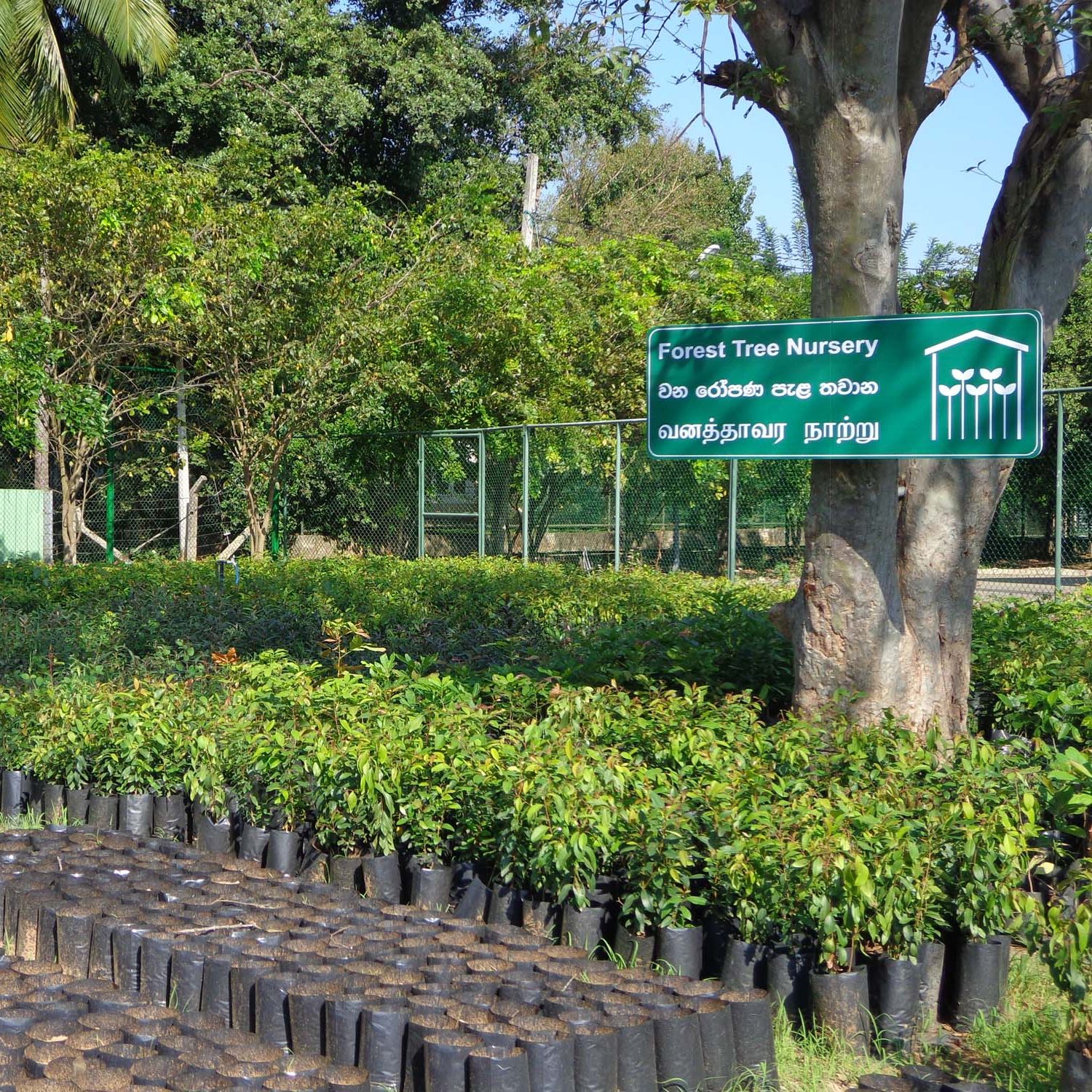
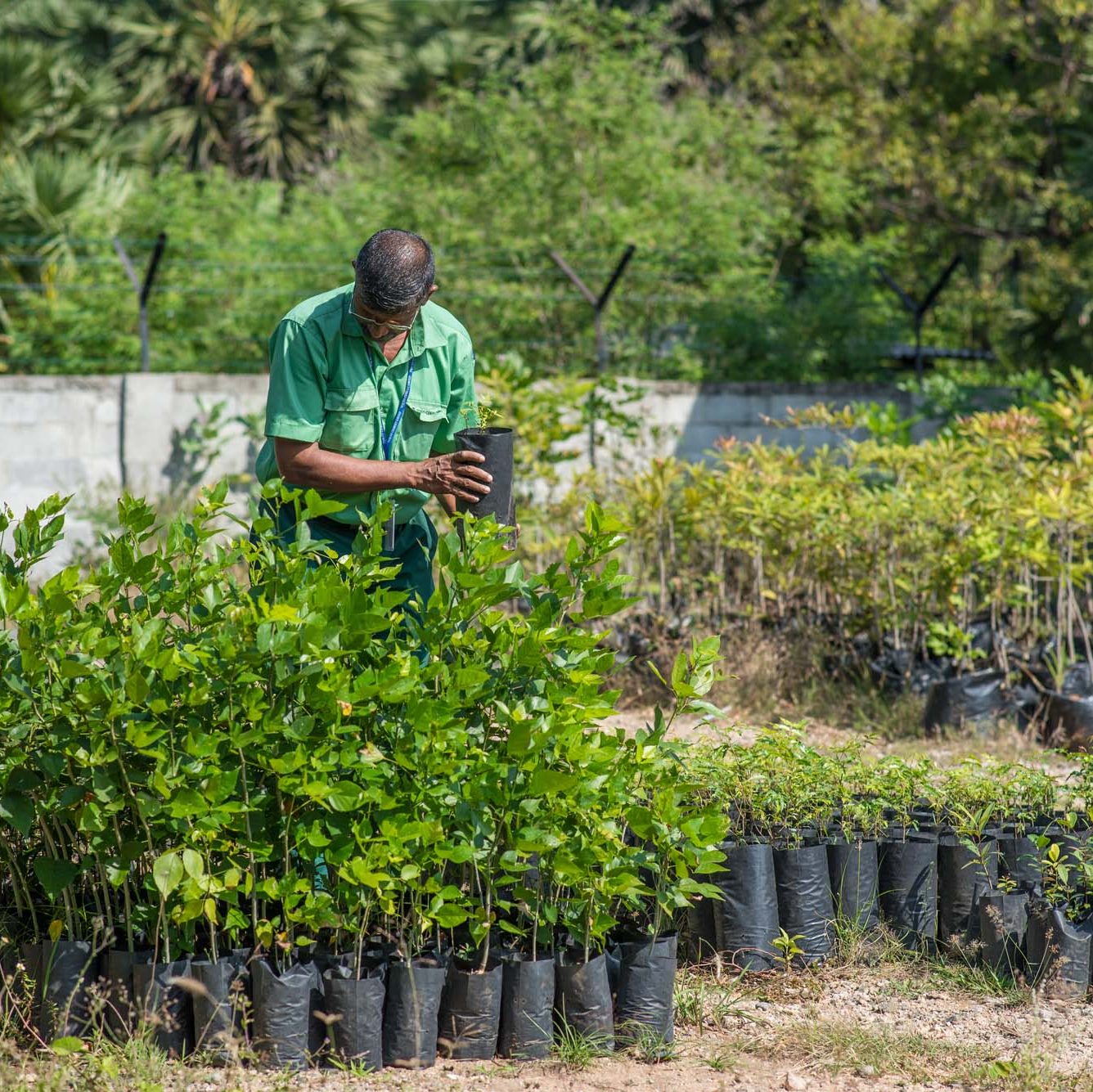
The forest tree nurseries in Trinco and Mahiyangana produce over 10,000 indigenous tree saplings annually
These plant saplings are distributed among farmer organizations in Mahaweli Zones, government institutions, the Agrarian Services Department and other independent community groups who conduct island wide tree planting campaigns.
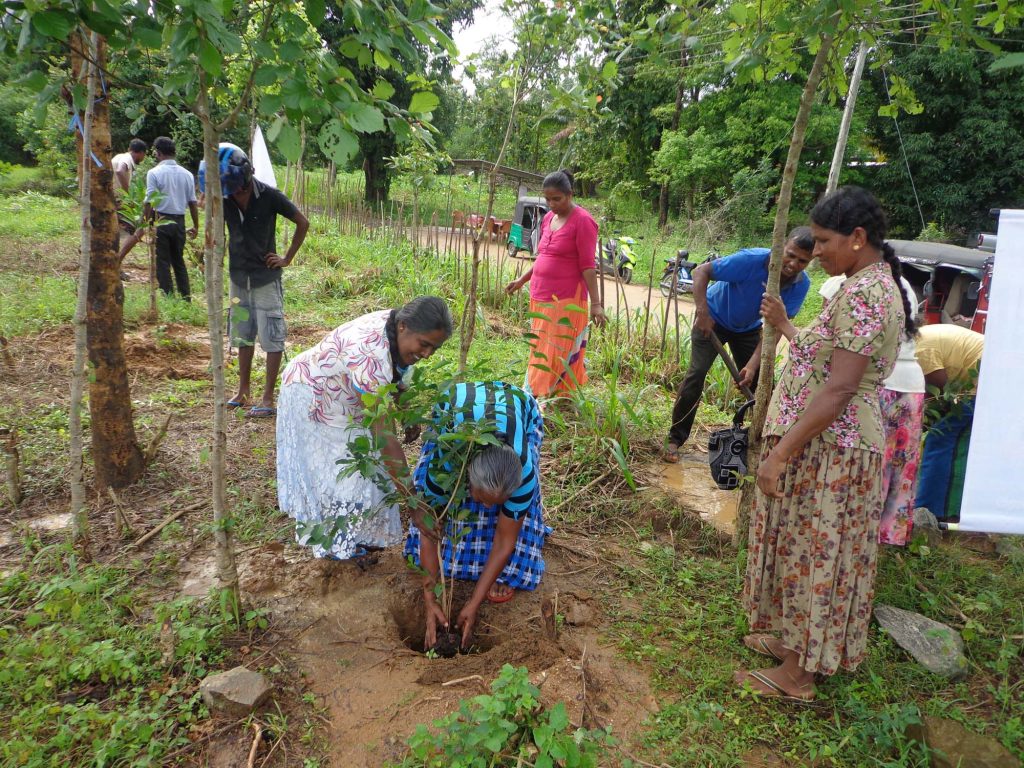
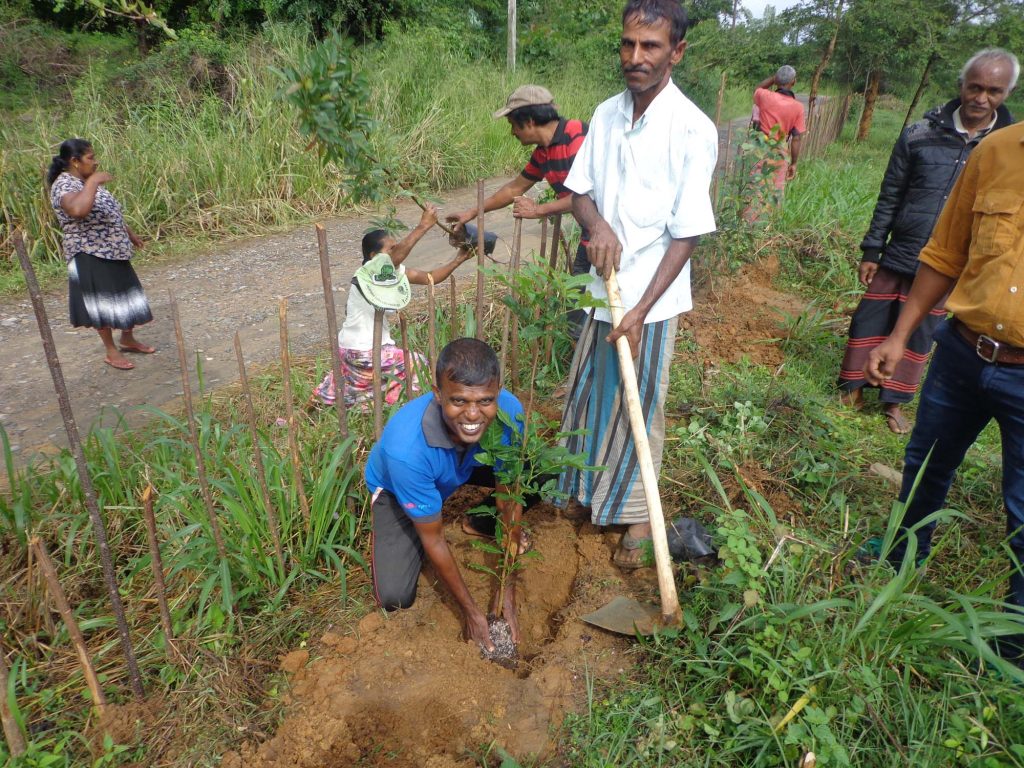
The tree saplings are distributed for reforestation campaigns carried out by various organizations
This initiative was recently expanded with an aim to plant 168,000 Kumbuk and Mee trees along the Mahaweli Riverbanks. In addition to nourishing the water catchment areas of the river, these trees will stop the banks from getting eroded whilst stopping sediment wash off due to rain. The long-term gaol of this program is to sustain the tropical forest belt lining the path of the Mahaweli River.
By adopting this future-ready corporate ethos, Tokyo Cement Group has successfully demonstrated that it is within every corporate citizen’s control to achieve profitable growth by making environmental sustainability a key business priority. Coupled with these programs and the Company’s primary commitment; which is to deliver superior products for construction projects that symbolize Sri Lanka’s growth, Tokyo Cement Group has cemented its legacy as the Partner in Nation-building.
